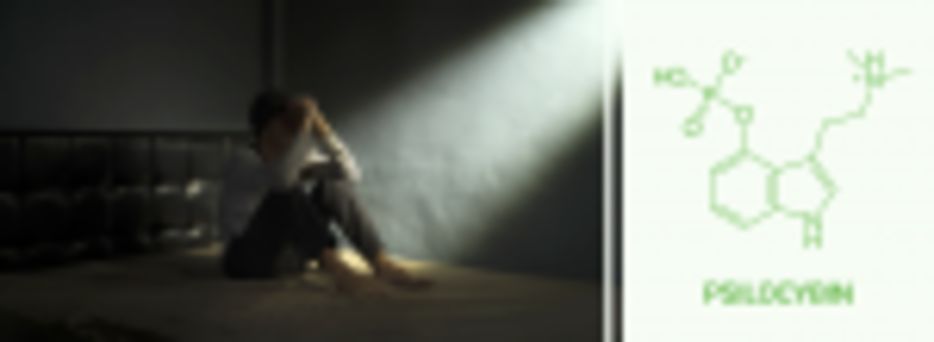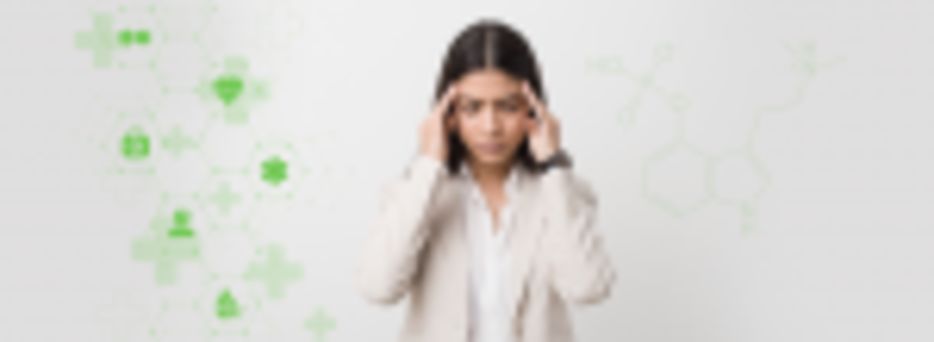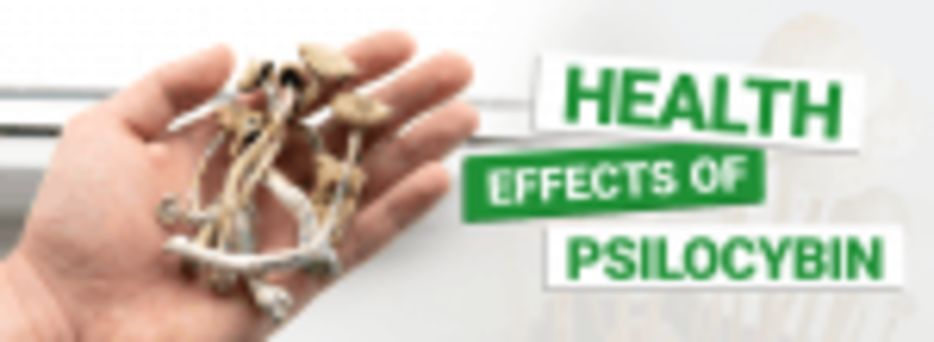Magic mushrooms have made quite the transformation from providing trippy times to being researched as a legit medical treatment. Recent studies into psilocybin and other natural shroom compounds are slowly changing the world’s perception of the once ‘illicit’ or psychedelic ‘drug’.
Now, even microdosing mushrooms is becoming increasingly popular to achieve the health benefits that psilocybin can provide. So, what are the true health effects of psilocybin? Let’s take a look at the medical side of mushrooms, to find out more.
First, what is psilocybin?
Psilocybin is scientifically known as 4-phosphoryloxy-N,N-dimethyltryptamine. The compound is found in differing types of hallucinogenic mushrooms or ‘magic mushrooms’ and when digested transforms into ‘psilocin’. The two are classified as indole-alkylamines or tryptamines due to their hallucinogenic nature and have a structure similar to that of LSD (aka acid).
As for enacting its effects, psilocybin interacts with the 5-HT serotonin receptors found in the central nervous system. Serotonin is often nicknamed ‘the happy chemical’ even amongst scientific communities, due to its regulation of well-being or responsibility for feeling happy.
Now, more than ever the compound is being taken more seriously legally. In the USA, John Hopkins University has already recommended re-classifying psilocybin from a ‘schedule-1′ drug to a category along with legal prescriptions.
In Canada, a grassroots and underground campaign of activism has lead to a number of online retailers for magic mushroom delivery. These outlets have become mainstream after years of psychedelic advocates, including the Liberal Party, petitioning the government to support federally funded research.
This progress is largely in part to the amount of private and small-scale studies that have been conducted on the health effects of psilocybin. With extraordinary success and positive long-term results, it’s hard not to be serious about the benefits that shrooms can provide. Next, we’ll review the findings from those studies and how psilocybin is medically-worthy.
The research so far on shrooms
Cultural shifts have lead the science community to more deeply explore the health effects of hallucinogenics, including magic mushrooms. From mushroom effects on the body to mushroom dosage levels, they’re fine-tuning their research for the hope of future prescription use. Here’s a quick overview of the most important scientific findings on magic mushrooms and psilocybin.
Psilocybin can help treat depression

Considering the compound’s interaction with serotonin or that ‘happy chemical’, it’s no surprise it’s being researched for depression treatment. Early microdosing mushrooms depression studies have resulted in much success for the patients participating.
So much so, that The Ursona Institute was granted approval for trials as ‘breakthrough therapy’ for depression by the FDA. This classification allows for speedier approval times. The institute is currently conducting specific research on patients suffering from Major Depression Disorder (MDD) to prove psilocybin’s efficacy.
Psilocybin can help curb addictions, like smoking
A study conducted on psilocybin and smoking cessation proved positive results up to 12 months from taking the compound. At John Hopkins University, 67% of the study’s participants remained abstinent from smoking after a year. To add over 85% of the participants also noted that the psilocybin experience was “among the 5 most personally meaningful and spiritually significant’ in their lives.
This research is showing promise for psilocybin’s ability to help treat other addictive conditions. Like alcoholism or opioid addictions. The study’s lead author, Matthew Johnson, PhD had this to say on the results, “The general idea is that the nature of these disorders is a narrowed mental and behavioural repertoire. So, [psilocybin] in well-orchestrated sessions [has] the ability to essentially shake someone out of their routine to give a glimpse of a larger picture and create mental plasticity with which people can step outside of those problems.”
Other trials have shown that the 5HT2A agonist may be responsible for psilocybin’s ability to ‘show relevant effects’ on drug or alcohol addiction. This is a common serotonin receptor that is found in the central nervous system.
Psilocybin can help anxiety in those suffering from cancer
When a patient is suffering from cancer, it’s understandable that anxiety is higher than normal. Especially when their ‘end-of-life’ is nearing. New York University looked at this connection and explored if psilocybin’s relief could help. 60-80% of the participants experienced a rapid reduction in distress that lasted 6+ months in their study.
To add, another John Hopkins trial saw similar results. When dispensing psilocybin to 51 adults with advanced cancer, 80% saw a clinically significant relief from anxiety and depression.
Like we’ve mentioned, research into the exact science of psilocybin is in its early stages. Currently, studies are ongoing into how psilocybin may also be capable of treating the following conditions, too.
- Eating disorders and anorexia
- Alzheimer’s and depression
- Post-traumatic-stress-disorder or PTSD
- Lyme disease
What types of magic mushrooms provide health effects?

Since magic mushrooms are just natural growing fungi, there is a wide range of types that have psilocybin and provide health effects. To help decipher which you should choose, here are a few of the most popular types of shrooms that can be used for medical benefits.
- Golden teachers – A new and elusive variety that emerged in the 1980’s is one of the most popular species, now. Effects are powerful, yet mild enough for novice – advanced shroom users.
- Transkei cubensis mushrooms – Originates from Africa, and is more potent than most magic shrooms. Recommended for those who have tried shrooms previously.
- Psilocybe cubensis Mexicana – Originates from the ancient Aztecs, and delivers mild effects. Ideal for beginner users.
- Alcabenzi cubensis – Originates from Mexico, also recommended for beginner users acclimating to effects at lower doses.
The future of shrooms
Whether using recreationally or for health benefits, the future of shrooms is looking bright. Medically speaking, their main compound psilocybin is being extensively researched for the effects it can provide.
When microdosing or taking at certain dosages, the benefits that shrooms can provide for many hard-to-treat conditions like anxiety, depression and addiction are profound. As research and clinical trials continue to succeed, magic mushrooms will only be taken more seriously by scientific and medical communities, alike. If you’re looking to get ahead of the shrooms game, MMJDirect.co is a reputable outlet of premium psilocybin products, that are delivered safely and securely.




